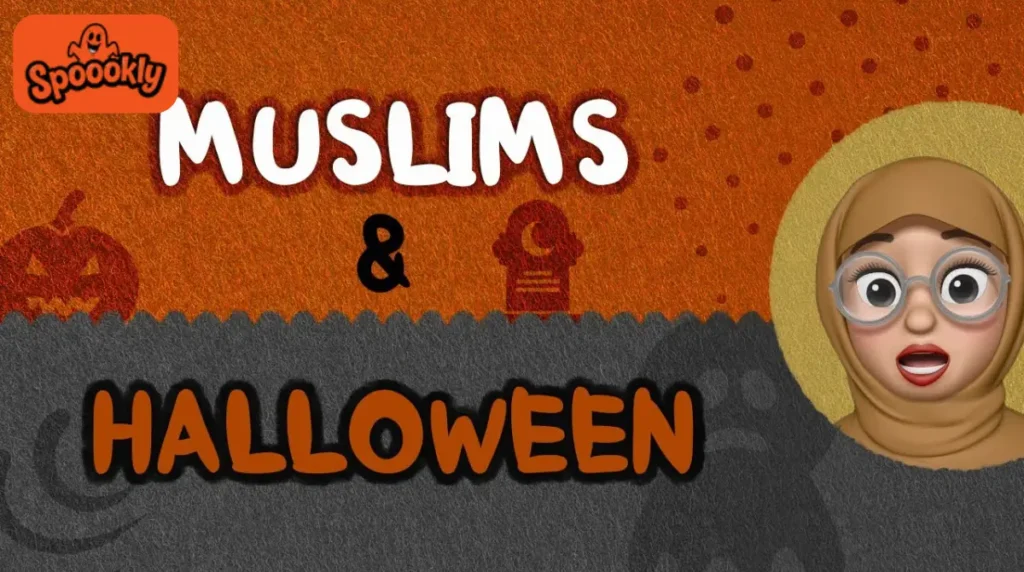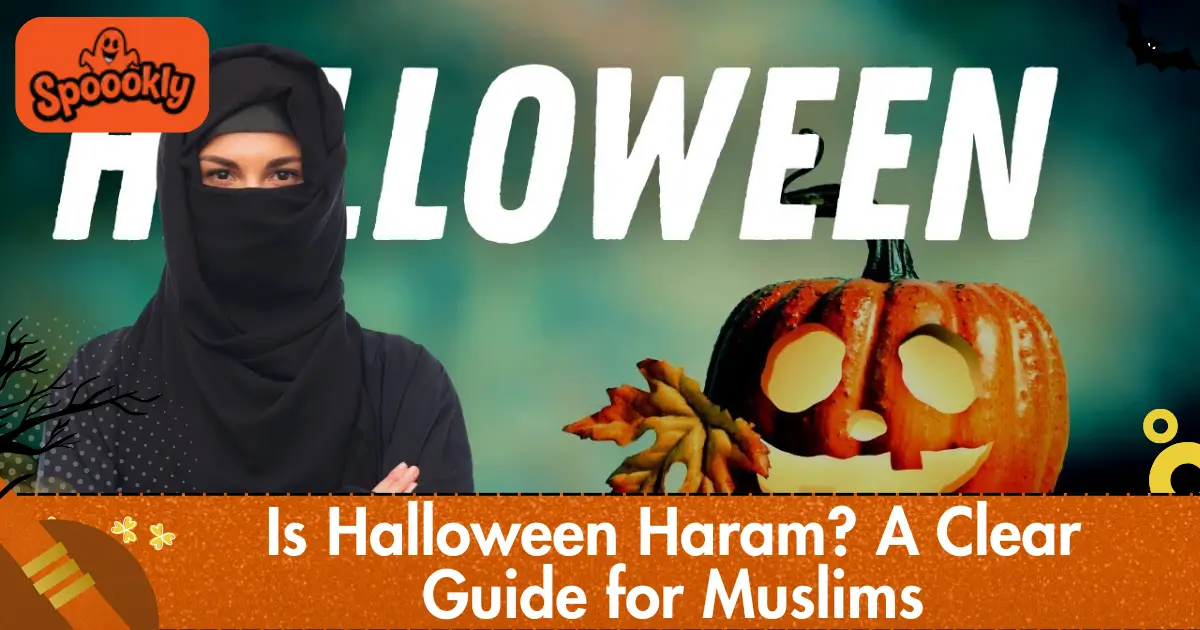The short answer is yes Halloween is haram as most scholars say Halloween is haram. The reason is simple: its roots are tied to pagan traditions, and many of its practices go against Islamic teachings. Still, the topic is more layered than a single yes or no.
Today, Muslims all over the world live in diverse societies. Many face peer pressure when friends and schools organize Halloween events. That raises an important question: is Halloween allowed in Islam, or should Muslims stay away?
In this article, I’ll discuss Halloween from its history to Islamic rulings. I’ll share how different scholars view it, which practices are clearly forbidden, and where debates exist. My goal is not to judge but to explain.
By the end, you’ll understand why so many scholars lean toward prohibition and what practical choices Muslims can make.
Historical and Cultural Origins of Halloween
To understand why scholars call Halloween haram, we need to know where it comes from.
1. Pagan Beginnings: The Celtic Festival of Samhain
Halloween traces back to the ancient Celtic festival called Samhain, celebrated over 2,000 years ago.
The Celts believed that on October 31, the barrier between the living and the dead became thin. They lit bonfires, wore costumes, and left offerings to keep evil spirits away.
That means the core of Halloween started as a pagan festival about spirits and ghosts.
2. Christian Influence: All Saints’ Day
When Christianity spread, the Church adapted local customs. November 1 became All Saints’ Day, also called All Hallows’ Day. The night before was known as All Hallows’ Eve, which later became Halloween.
So, the religious layer shifted but didn’t erase the earlier pagan practices.
3. From Religious to Secular Holiday
Over centuries, Halloween evolved into what we see today: costumes, trick-or-treat, haunted houses, pumpkin carving, and candy. In most Western countries, it’s more commercial and cultural than religious.
Shops push decorations, people host parties, and children go door to door for sweets. Still, the themes of witches, ghosts, demons, and death remain at its center.
Quick Timeline of Halloween Origins
| Period | Key Development | Influence Seen Today |
|---|---|---|
| Celtic (Samhain) | Spirits, bonfires, costumes to ward off evil | Ghosts, spooky imagery |
| Christian (7th c.) | All Saints’ Day / All Hallows’ Eve | Name “Halloween” |
| Medieval Europe | Souling, folk rituals | Trick-or-treat roots |
| Modern era | Secular, commercial holiday with costumes, candy | Mainstream Halloween |
Core Islamic Principles That Apply
Now let’s move into what Islam says. Scholars use several key Islamic principles when ruling on Halloween.
1. Shirk: Associating Partners with Allah
Any festival that glorifies spirits, ghosts, or supernatural beings can lead to shirk. Islam is strict about protecting tawheed (oneness of Allah). If a celebration has traces of worshipping or honoring other powers, it becomes forbidden.
2. Imitation (Tashabbuh)
The Prophet ﷺ said: “Whoever imitates a people is one of them.”
This hadith is often quoted when Muslims adopt non-Islamic religious practices. Scholars argue that dressing up as witches or demons, or copying pagan rituals, falls under impermissible imitation.
3. Intention (Niyyah)
Islam teaches that actions are judged by intentions. If someone joins Halloween just for candy, is that the same as honoring pagan roots? Some argue intent matters, but others say the act itself still resembles impermissible practices.
4. Bid’ah (Religious Innovation)
Islam only recognizes two annual festivals: Eid al-Fitr and Eid al-Adha. Introducing new celebrations, especially ones with pagan or non-Islamic roots, is seen as bid’ah. This is one of the strongest arguments against Halloween.
5. ’Urf (Custom and Culture)
Islamic law sometimes allows local customs if they don’t clash with faith. The debate is whether modern Halloween, stripped of religious meaning, counts as a harmless custom or remains tied to its problematic roots.
6. Boundaries of Halal and Haram
In Islam, fun and social activities are fine as long as they don’t cross the lines of shirk, haram imagery, or imitation of non-Islamic festivals. Halloween often blurs those boundaries.
Scholarly Opinions on Halloween in Islam
When it comes to Halloween, Islamic scholars haven’t minced their words. Most fatwas lean strongly toward prohibition, while a few contextual voices add nuance. Let’s break it down.
1. Strong Prohibition Views
- Dr. Muzammil Siddiqi (ISNA) has stated clearly that celebrating Halloween is sinful and haram because of its pagan roots and symbolic practices.
- AskImam.org (Darul Uloom) issues a firm ruling: “Celebrating Halloween in any form is impermissible.”
- Al-Talib (Islamic publications) describes Halloween as one of the worst celebrations for Muslims, since its imagery glorifies darkness, death, and superstition.
These rulings stress that joining Halloween even in its secular form still connects Muslims to pagan symbolism and imitation.
2. More Contextual and Moderate Views
Not all scholars rule with the same tone. Some point out that in modern times, many people view Halloween as social entertainment rather than worship.
- Dar al-Ifta al-Misriyyah suggests Muslims may participate socially in non-religious aspects, provided they avoid treating it like an “Eid” or religious festival.
- Other scholars emphasize intention and symbolism: dressing as superheroes may be less harmful than dressing as demons, though even this is often discouraged.
3. Spectrum of Opinions
The scholarly spectrum looks like this:
| Scholar / Source | Position on Halloween | Reasoning |
|---|---|---|
| AskImam.org | Haram, absolutely forbidden | Pagan roots, imitation |
| Dr. Muzammil Siddiqi | Haram | Pagan origin, symbolism |
| Al-Talib publications | Haram | Promotes superstition & darkness |
| Dar al-Ifta (Egypt) | Conditional participation allowed | If no religious intent, no “Eid” |
| Some contextual scholars | Depends on activity & intention | Harmless fun vs. harmful symbolism |
The consensus leans strongly toward prohibition, but a few allow limited, cautious participation in purely cultural aspects.

Types of Halloween Activities & Their Rulings
To make this practical, let’s look at common Halloween activities and how scholars might view them.
| Activity / Practice | Common Form | Islamic Ruling or Concern |
|---|---|---|
| Wearing scary costumes | Witches, demons, skeletons, devils | Discouraged or haram (imitates pagan/demonic themes) |
| Wearing neutral costumes | Superheroes, cartoon characters | Mixed views; some lenient, but tied to Halloween so often discouraged |
| Trick-or-treating | Children collecting candy door to door | Socially benign, but issue arises when tied to celebrating Halloween |
| Giving candy without celebrating | Handing candy politely without decor | Some scholars allow if not endorsing the holiday |
| Decorating homes | Jack-o’-lanterns, ghosts, spider webs | Problematic due to pagan symbols & superstition |
| Haunted houses / horror parties | Entertainment around ghosts & death | Considered haram due to superstition and glorification of evil |
| Saying “Happy Halloween” | Greeting others | Many scholars forbid as it endorses the festival |
| Neutral social interaction | Attending a neighbor’s party without costume | Divided views; depends on intention and how much symbolism is involved |
Arguments in Favor of Contextual Participation
Even with strong prohibitions, some Muslims argue for nuance, especially in Western societies.
1. Intention Matters
If someone sees Halloween as purely cultural fun and not tied to belief, they argue it may not count as haram. For example, letting children eat candy from neighbors without dressing as devils.
2. Social Pressures in Non-Muslim Societies
Muslim children living in the West often face peer pressure at school. Completely isolating them may lead to social exclusion. Some parents allow limited, symbolic participation to avoid alienation.
3. Precedent in Islamic Jurisprudence
Islamic law sometimes tolerates harmless cultural practices. The debate is whether modern Halloween, stripped of worship, qualifies as a harmless custom.
4. Avoiding Extremes
On one hand, total bans risk creating resentment, especially among young Muslims. On the other hand, total acceptance risks normalizing pagan roots. Scholars who take a balanced view call for cautious participation without endorsement.
Practical Guidance for Muslims on Halloween
After looking at the rulings and debates, the next question is: how should Muslims deal with Halloween in daily life?
When to Avoid Participation
- If Halloween activities involve pagan or demonic symbolism, like witch costumes or haunted rituals, Muslims should stay away.
- When events clearly imitate religious festivals outside Islam, avoiding them is safest.
- If participation feels like endorsing Halloween as a festival, then it becomes haram.
Safeguards Muslims Can Use
- Avoid supernatural costumes: no demons, witches, or zombies.
- Stay clear of decorations that promote ghosts, spirits, or jack-o’-lanterns.
- Skip Halloween greetings that promote the holiday directly.
- Offer alternatives: harvest parties, autumn picnics, or charity events for kids.
These safeguards help balance community life while keeping Islamic boundaries intact.
How Parents Can Handle Peer Pressure?
For Muslim parents in non-Muslim societies, Halloween can feel like a yearly headache. Here are ways to make it easier:
- Talk to children early about Islamic beliefs and why Halloween is different.
- Offer fun alternatives at home, story nights, indoor games, or Islamic-themed parties.
- Coordinate with schools: let teachers know politely that your child won’t be in Halloween parades or costume contests.
- Encourage positive identity so children feel confident saying “no” without embarrassment.
Kids often want to fit in. When parents explain with love and provide substitutes, it eases the tension.
Counterarguments and Responses
Let’s tackle the most common objections.
“It’s just fun, nobody cares about the pagan meaning.”
True, most people don’t know the origins. But in Islam, symbolism matters. Glorifying spirits or demons, even playfully, crosses boundaries.
“Other Muslims do it, so why can’t I?”
Islam doesn’t base rulings on popularity. Following peer pressure is not a valid reason to adopt practices linked to shirk or bid’ah.
“It’s cultural, not religious.”
Cultural festivals are fine when harmless. Halloween’s issue is that its imagery still glorifies pagan ideas. That makes it different from neutral cultural practices.
“If harmless parts are okay, why forbid everything?”
Scholars don’t forbid everything. Some allow neutral actions (like eating candy) as long as they aren’t tied to celebrating Halloween itself. The problem is when all actions together normalize it as a holiday.
Conclusion
Most scholars agree: Halloween is haram, mainly due to its pagan roots and its themes of spirits, death, and superstition.
While some contextual voices permit minimal cultural interaction, the consensus is to avoid full participation.
The best approach is balance:
- Stay firm on Islamic principles.
- Avoid costumes, greetings, and decorations tied to paganism.
- Provide positive, halal alternatives for children.
- When in doubt, consult trusted local scholars.
In the end, our actions reflect our faith and identity. Halloween may look like harmless fun, but Islam asks us to protect our beliefs from anything that blurs the line with shirk or innovation.
FAQs
Not always. Neutral costumes (like cartoon characters) are less problematic, but if they’re tied to Halloween, many scholars still discourage them.
Yes, some scholars allow giving candy as polite interaction, as long as it doesn’t mean celebrating Halloween.
If it’s purely decorative and not tied to Halloween, pumpkin carving is fine. But jack-o’-lanterns with ghost symbolism are discouraged.
It’s better to excuse children politely and suggest alternatives. Parents can explain their beliefs to teachers.
Each has its own issues. Halloween is often seen as worse because of its direct link to pagan and occult practices.

